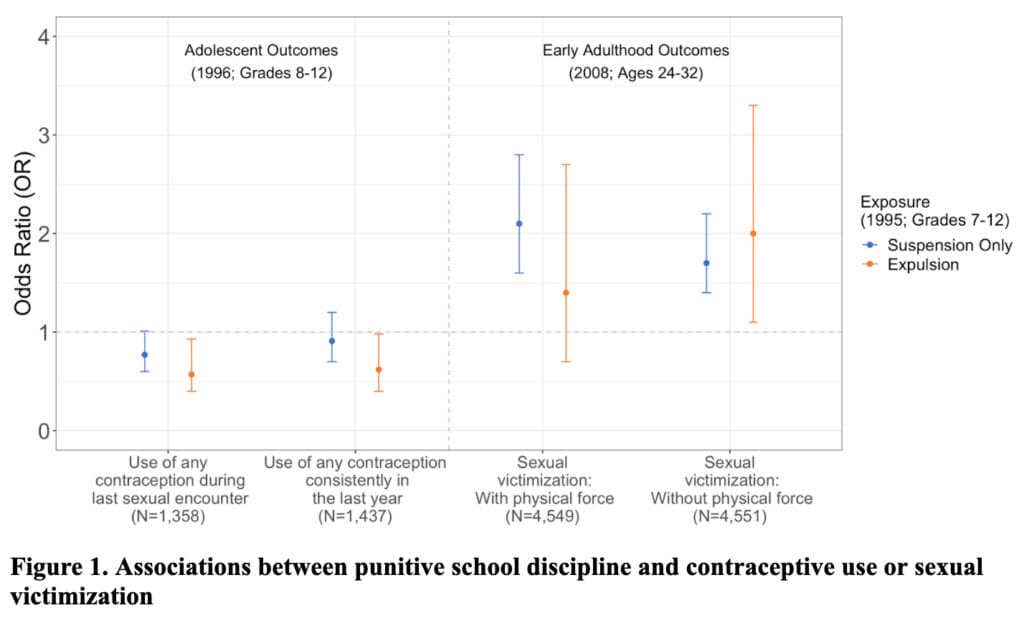Social
Punitive school discipline is associated with lower odds of contraceptive use in adolescence and higher odds of sexual victimization in early adulthood Jillian Hebert* Jillian Hebert Catherine dP Duarte Kelsey Holt Anusha M Vable
Punitive school discipline practices, like suspension or expulsion, are common exposures in US schools with implications for disrupted positive peer and trusted adult relationships. While linked to increased risk for various adverse physical and mental health outcomes, no work has evaluated associations between punitive school discipline and adolescent contraceptive use or sexual victimization in early adulthood. We hypothesize that punitive school discipline increases vulnerability to sexual victimization and risk for engaging in unprotected sex. In National Longitudinal Study of Adolescent to Adult Health data, we used confounder adjusted logistic regressions to estimate associations between punitive school discipline (3-levels: no discipline, ever suspended, ever expelled; measured in grades 7-12) and (1) adolescent contraceptive use one year later (yes/no in last encounter; in past year) and (2) sexual victimization (yes/no without physical force; with physical force) measured 14 years later when students enter early adulthood (ages 24-32). 22% of participants experienced suspension and 4% experienced expulsion at baseline. While suspension was not associated with contraceptive use during the last sexual encounter or in the last year, compared to no punitive school discipline, suspension was associated with higher odds of experiencing sexual victimization in early adulthood (with physical force OR: 2.11, 95%CI: 1.61, 2.76; without physical force OR: 1.74, 95%CI: 1.36, 2.20). Compared to no punitive school discipline, expulsion was associated with lower odds of contraceptive use (in last encounter OR: 0.57, 95%CI: 0.36, 0.93; in past year OR: 0.62, 95%CI: 0.39, 0.98) and higher odds of experiencing sexual victimization without physical force (OR: 1.98, 95%CI: 1.14, 3.31). Results suggest exposure to punitive school discipline may shape sexual experiences in adolescence and early adulthood and may be an important modifiable risk factor for long-term sexual health.

